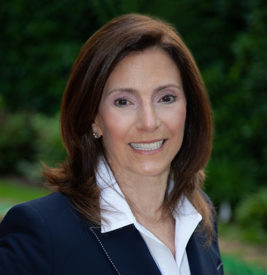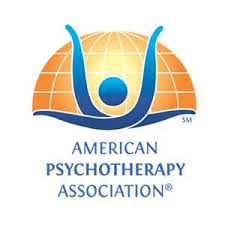
Need A Roslyn Therapist?
Dr. Maryann B. Schaefer
Ph.D. – Counseling, Concentration in Psychology
NYS Licensed Mental Health Counselor
Fellow of American Psychotherapy Association
Phone: (516) 627-1145
Therapy For Roslyn, NY
Sometimes we need help getting through a difficult period in life. At other times we find that we have been stuck in a “mental rut” that we cannot get out of. Life can get as busy as Northern Blvd and it may be difficult to find the time to figure things out. Whether you live in Roslyn or another town, at these times a mental health therapist can help loosen the emotional bonds that are tying us down.
If you are looking for a Roslyn therapist you came to the right place. With an office in Manhasset for over twenty-five years, Dr. Maryann Schaefer is a psychotherapist that is just a quick drive from Roslyn, NY. She is an experienced and highly-qualified mental health professional who has been helping patients with the entire range of therapeutic issues for nearly a quarter of a century.
Mental Health Problems That Therapists Can Help You With
Dr. Schaefer works with individuals, children, adolescents, couples with relationship problems, and family therapy to make sense of life’s dilemmas and to map the routes to a better and happier life. Many problems that a psychotherapist deals with have existed in families for years and even generations. Because of this, coming to understand these issues is the first move in learning to deal with them. Anxiety and obsessive-compulsive disorders, depression, pregnancy loss, postpartum depression, grieving and bereavement, marital infidelity, divorce, and relationship breakups are issues that a therapist deals with. Other issues that can be dealt with successfully in psychotherapy include parenting, learning to set limits, bullying, life transition adjustments and various types of substance abuse.

When you work with an experienced therapist, such as Dr. Schaefer, it is always a joint effort. Identifying the answers and implementing new behaviors will help you effectively to deal with the curveballs that life throws at you. Sometimes psychotherapy sessions, and even family therapy, deal with discovering hidden truths. And sometimes the focus is on coaching to change one’s lifestyle. Therefore, the focus is always what is therapeutic for the individual and their concerns.
How Does Psychotherapy Help?
There are things in life that we cannot change. However, we can learn how we process life, as well as how these variables impact on our lives and our emotional stability. We can learn how to address these events, chronic situations through emotional relearning and implementing coping skills to make them manageable and, perhaps, no longer destructive. There are behaviors that we have learned that all-too-often make situations worse or prolong them. The first step forward in psychotherapy is to understand that change is necessary and professional help is available.
 In psychotherapy, we work together to understand the beginnings of beliefs and coping mechanisms. Many of these go back to early childhood and are related to the bond between a mother and child. How a young child’s sense of the world and their place in it develops is a major determinant in how the world is seen and dealt with for the rest of one’s life. Learning how your family interacted and your place in those interactions are very important. This can connect quickly with family therapy. These dynamics typically drive how you interact with people today, your expectations, and your responses. The goal of psychotherapy is to rediscover those early experiences and the beliefs that evolved from them. What we needed or wished to have learned as a child can still be learned as an adult by working with a therapist.
In psychotherapy, we work together to understand the beginnings of beliefs and coping mechanisms. Many of these go back to early childhood and are related to the bond between a mother and child. How a young child’s sense of the world and their place in it develops is a major determinant in how the world is seen and dealt with for the rest of one’s life. Learning how your family interacted and your place in those interactions are very important. This can connect quickly with family therapy. These dynamics typically drive how you interact with people today, your expectations, and your responses. The goal of psychotherapy is to rediscover those early experiences and the beliefs that evolved from them. What we needed or wished to have learned as a child can still be learned as an adult by working with a therapist.
Who Comes to Mental Health Counselors for Help?
Although experienced mental health professionals such as Dr. Schaefer work with adults and children across a wide cross-section of challenges, most people can benefit from psychotherapy. Many psychotherapy clients have successful business and professional lives, but find it difficult to develop and maintain lasting and meaningful relationships. They find it difficult to identify their feelings, to express these feelings in words, and very often to modulate how they impact on their behaviors.
In these situations, the patient and therapist work together to discover issues in the person’s early life. These can include coping mechanisms that worked great at age five, not so well at age twelve, and not at all in adulthood. Sometimes a person has been so focused on material success that they simply have never had the opportunity to develop interpersonal and emotional skills nurturing of successful intimate relationships. But, these skills can be learned, practiced, and improved upon for a better personal environment. The key is to work with an experienced therapist to define the issues involved, identify the contributing causes, and move forward to workable solutions in present-day life.
What Are the Goals of Therapy?
You may consult a therapist with particular problems in mind, such as depression or anxiety. And, you may discover that the problems or issues were different, or more complex, or even simpler than you believed. The first goal in psychotherapy is to discover the truth. This is both the truth as you have seen it for years and the truth as experienced by others.

The old saying that the truth will set you free really does apply to psychotherapy and other forms of mental health therapy. The more you understand yourself, your emotions, your beliefs, and your methods of dealing with life, the better equipped you are to live a happy, content, and successful life. The goals you set will come from your understanding of yourself as that understanding emerges during therapy, and family therapy.
As such, the goals of psychotherapy may evolve over time. It is the job of the therapist, with years of experience, to keep the fact-finding and goal-setting on track. The point of good psychotherapy is to arrive at solutions that improve the quality of a person’s life. This is what you will discover when working with a Long Island therapist such as Dr. Schaefer.
How Long Does Mental Health Treatment Last?
Mental health treatment, such as psychotherapy, is meant to help us with life’s difficulties. Many patients experience some relief in a relatively short time. They learn key insights that they can put to work with relative ease. Other patients have more complicated issues that require time to uncover and explore.

Some may have deep-seated issues that require time to uncover. The frequency of therapy visits is generally weekly with additional sessions scheduled based on mutual agreement. In Dr. Schaefer’s psychotherapy practice the treatment is always consistent in its approach and focus on what is therapeutic for the individual, but of course if needed, family therapy.
There are many Roslyn therapists, but not many that give you multiple decades of experience. Dr. Schaefer’s office is in the next town over from Roslyn, and very close to Northern Blvd. Neighboring Long Island towns are Great Neck and Port Washington. If you are in need of a therapist and NYS Licensed Mental Health Counselor specializing in family therapy, relationship problems, anxiety disorders, and other mental health issues please contact Dr. Schaefer.
Dr. Maryann Schaefer
Ph.D. – Counseling, Concentration in Psychology
NYS Licensed Mental Health Counselor
Fellow of American Psychotherapy Association
Phone: (516) 627-1145
Email: drmaryannschaefer@gmail.com

